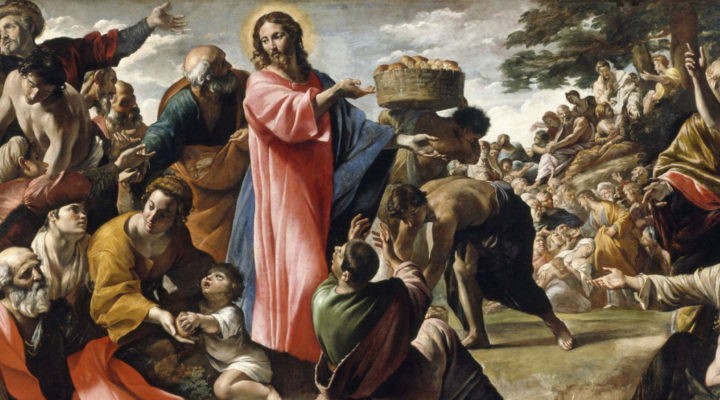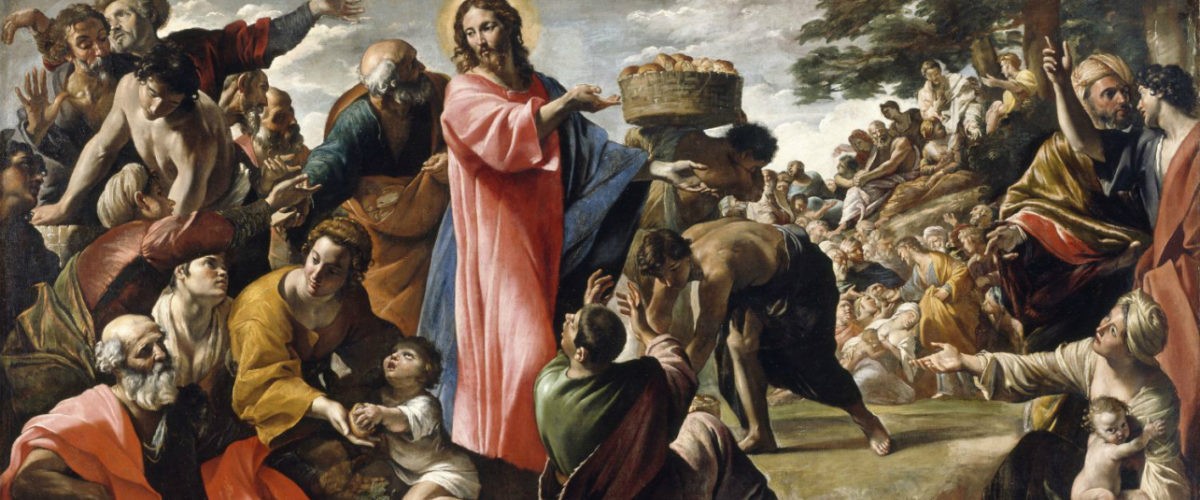As the rhetoric ramps up for the 2020 election, the term “socialist” has become a go-to polemic in the American political debate. While some portray Jesus as an Adam Smith-style capitalist, weaponizing the word “socialist” against their political opponents, others wear it as a badge of honor, casting Jesus as a precursor to Marx.
But what does the New Testament teach about wealth and poverty, and how can Christians embrace its standard of justice and neighbor-love with their lives and finances?
“The notion that Jesus is going to answer our questions of political theology is a betrayal of history and the incarnation,” Sondra Wheeler told me when I asked her if she viewed Jesus as more of a capitalist or a socialist. “It’s inappropriate to ask it to answer our 21st-century questions.”

Sondra Wheeler
Wheeler, professor of Christian ethics at Wesley Theological Seminary, has written extensively on, among other topics, the New Testament’s teachings on social responsibility.
“Obviously, Jesus is not a follower of Marx,” she said, “but he’s not a follower of Adam Smith either. He doesn’t advocate for any particular political economy.”
Both in her book Wealth as Peril and Obligation, and in our conversation, Wheeler kept returning to one theme. “The New Testament,” she said, “is an in-house document.” According to Wheeler, Jesus didn’t speak as much about how to organize a just economic system as he did about how his disciples should live within an unjust one.
That’s doesn’t mean we should be satisfied with the inequity around us. Wheeler sees many of the ways our American capitalist system operates as “an exercise in uncharity.”
I couldn’t help but agree. As this year’s COVID-19 crisis has demonstrated, we live in an economic system that, in many ways, is built on inequality. Giant conglomerates price small businesses into oblivion, accumulating and concentrating wealth in the hands of the few while wages for those who work in the factories and storefronts stagnate. Tax breaks for the wealthy intended to stimulate the economy are shoveled into offshore investment accounts. In the early days of the pandemic, when testing supplies were scarce, the asymptomatic wealthy were tested, while sick middle-class patients were instructed to go home, self-isolate and hope for the best. All the while, Christians sit back in complicit approval, while, from beyond the grave, Marx cries out, “I told you so.”
This is where the New Testament and Marx diverge. Rather than advocating for a radical upending of social structures, Jesus calls us to live out God’s radical justice and equity in their midst. We recognize much of our current system to be blatantly unequal. Still, we don’t challenge it by political revolution, rather through a radical commitment to see justice and compassion lived out in our lives and our faith communities.
This doesn’t necessarily mean we avoid political action, but we recognize that apart from personal commitment, political action is both ineffective and unfaithful.
“Until we change ourselves and our churches, we will be ineffective in trying to tear down the political and social structures.”
As Wheeler told me, “Until we change ourselves and our churches, we will be ineffective in trying to tear down the political and social structures.”
This is not a call to moderation, however. Instead, it is a commitment to radical obedience. It’s one thing to speak out against a concept, to demand space for compassion and generosity, but to sacrificially model economic justice with our personal finances can be difficult and painful.
Social action may tax my schedule, but radical generosity taxes my bank account. Until Christians are willing to put our bank accounts on the line for the cause of economic equality, we’re not taking it as seriously as Jesus did.
So what does this look like in our daily lives? What specific direction does the New Testament give us in these areas?
According to Wheeler, expecting the New Testament to give us a bullet-point list will leave us disappointed. The New Testament writers didn’t intend to do this anymore than they intended to comment on contemporary political philosophy. Instead, Wheeler describes the New Testament ethic on wealth and social responsibility as “a patchwork quilt of norms and expectations.”
Wheeler contends that the ultimate significance of our attitudes toward money and possessions is how they reveal what we truly believe about God and God’s world. How seriously do we take God’s sovereign claim over our lives? Our advocacy and social action must flow out of our commitment to this sovereign rule of God over our lives and our finances.
This is not a moderate approach, but a radical response of obedience to Scripture’s call to recognize that “the earth is the Lord’s and the fullness thereof,” even when it is costly.
 Jason Koon is an ordained Baptist minister who writes at the intersection of faith and politics. He lives in Western North Carolina with his wife and two teenage daughters. His “Almost Exvangelical” blog is at www.jason-koon.com.
Jason Koon is an ordained Baptist minister who writes at the intersection of faith and politics. He lives in Western North Carolina with his wife and two teenage daughters. His “Almost Exvangelical” blog is at www.jason-koon.com.
Related articles:
My father, the born-again socialist
Our economic system rewards the privileged and lucky few. Now let’s talk about economic justice


